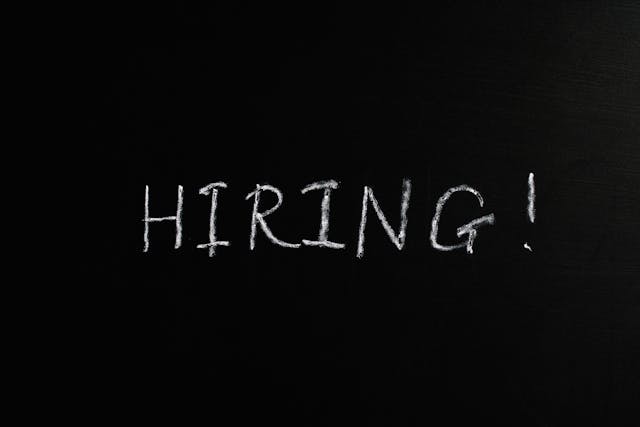How Do We Finish Our Year Stronger?

I don’t know about you, but my summer seemed to just fly by, and I cannot believe it is September 2024. We are beginning the last quarter of the year, and for sales professionals, there are only two outcomes. Will you finish in the red, or in the black? Will you finish strong or miss your targets and goals?
Winning near the end of a game, quarter or year is a trait of all the best salespeople I’ve ever met. Closing out strong is primarily the effect of a consistent quarter; there are still a handful of things you can do to strike off checkboxes in the win column to finish Q3 and your 2024 strong.
1. Be Direct – There’s no substitute for being pleasantly persistent and respectfully blunt. Get out there and be straightforward. Acting and getting after it is a choice and work on the high-quality leads and not the low-quality leads.
Ask yourself, “If you were me, would you forecast this listing or buyer prospect to buy or sell this month or in the next 90 days?” Remember, the shortest distance between two points is a straight line. Being direct will help you get real with your buying and selling customers and align yourself with the true sales cycle. It might also enable you to pull out a quick win.
2. Be Effective – For more than two decades now, I have heard from thousands of top-producing agents, and almost 60% of their business comes from repeat and referral business. Focusing first on the people we already know, like and trust is working effectively and efficiently in this business.
If you don’t have enough people who know, like, and trust you, then get out there and “S.T.P. – See The People.” If you have a list of relationships in place that have not “felt the love,” then get out there and see them and find ways to add value to them. Give them a call, email, text, handwritten note, small gift or even a coffee and just watch and see what happens with your last quarter.
3. Be Face to Face – Sales is a contact sport, and we need to be belly to belly. Any one of us making a large buying decision needs to know that the person we deal with is someone we like and can trust. The only way we can sense if we like or trust someone is meeting them in person.
Commit to the final quarter on sales activities that are primarily face-to-face and belly-to-belly activities like Open houses, door-to-door, kiosk, networking, office duty, coffee, lunch, pop-by, volunteer, client appreciation events or conventions. This is a relationships business so get out there to create and deepen those relationships. We have automated our way out of people’s lives in real estate.
4. Stack-Rank Your Prospects – We will never be able to manufacture more time, but we can manufacture more focus. I recommend looking at your pipeline and grading each opportunity on a scale of 1-4 with 4 being “highly closeable by the end of the quarter.” Then, focus your closing efforts on the 3’s and 4’s ONLY. You don’t have time to waste.
If you don’t have enough 3 and 4 prospects in the funnel then act and increase your marketing plan and daily prospecting, lead generation with planned marketing, activities that bring the level 3 and 4 prospects into your pipeline to finish Q3 strong.
5. Purge Your Pipeline – Almost every sales pro has them. They’re those big opportunities in the pipeline you’ve been working for months. The one deal that constantly disrupts your focus or the need to act. The buyer or seller who is the time and energy vampire, but you let them suck the life out of you because you don’t have anyone else to work with.
Every time you think about punting them, you get a glimmer of hope from them. It’s time……Remove them!! They don’t deserve to be on your radar right now. Coming clean with yourself will open new vistas and invigorate you to add more productive opportunities to your pipeline.
6. Start Planning for Next Quarter – How much revenue do you plan to book next quarter? Exactly how many new deals do you need to earn that amount? Knowing exactly what you plan to earn acts like a magnet to attract business your way. Having this exact number also allows you to project your required activities into month one of the new quarters.
If you’re accurately measuring your deal metrics, you’ll be able to predict with some certainty how many calls, emails, appointments, presentations, or opportunities you’ll need to make it rain. Ask for a review by management. Knowing your numbers is one thing, but to positively affect the business, it’s equally vital to understand your “why”, purpose and goals and have someone hold you accountable to them.
Bonus Tips: What NOT to Do in the Last Quarter
1. Do Not Bring on Bad Fitting Clients Just to Make Your Numbers – Any client outside of your ideal customer profile will complicate servicing, produce a higher likelihood of churn or failure, and ultimately cost you more time and resources than it will be worth. Instead, focus on filling the pipeline with high quality leads for next quarter. It’s never too early to start filling the funnel.
2. Never Give Away More Than You’re Comfortable With – It’s just not worth it. You only have one reputation for your brand and offering; treat it respectfully. Concessions can quickly become a crutch that hides other issues. Sell on value, not on price. Don’t cut your commissions, offer cash backs or any other silly incentives.
The key to closing out your quarter strong is to keep up the momentum that got you to where you are now. If you’re struggling to meet your numbers, it’s a time to embrace new sales insights and start building effective rhythm. Take the last-minute shots on goal listed above but remember to always be thinking about the bigger picture: Your reputation is the product of your past actions. Sales that allow you to produce predictable revenue are the future. Finish the last quarter and your year strong. I dare you!!
Strength and courage,
Wade








